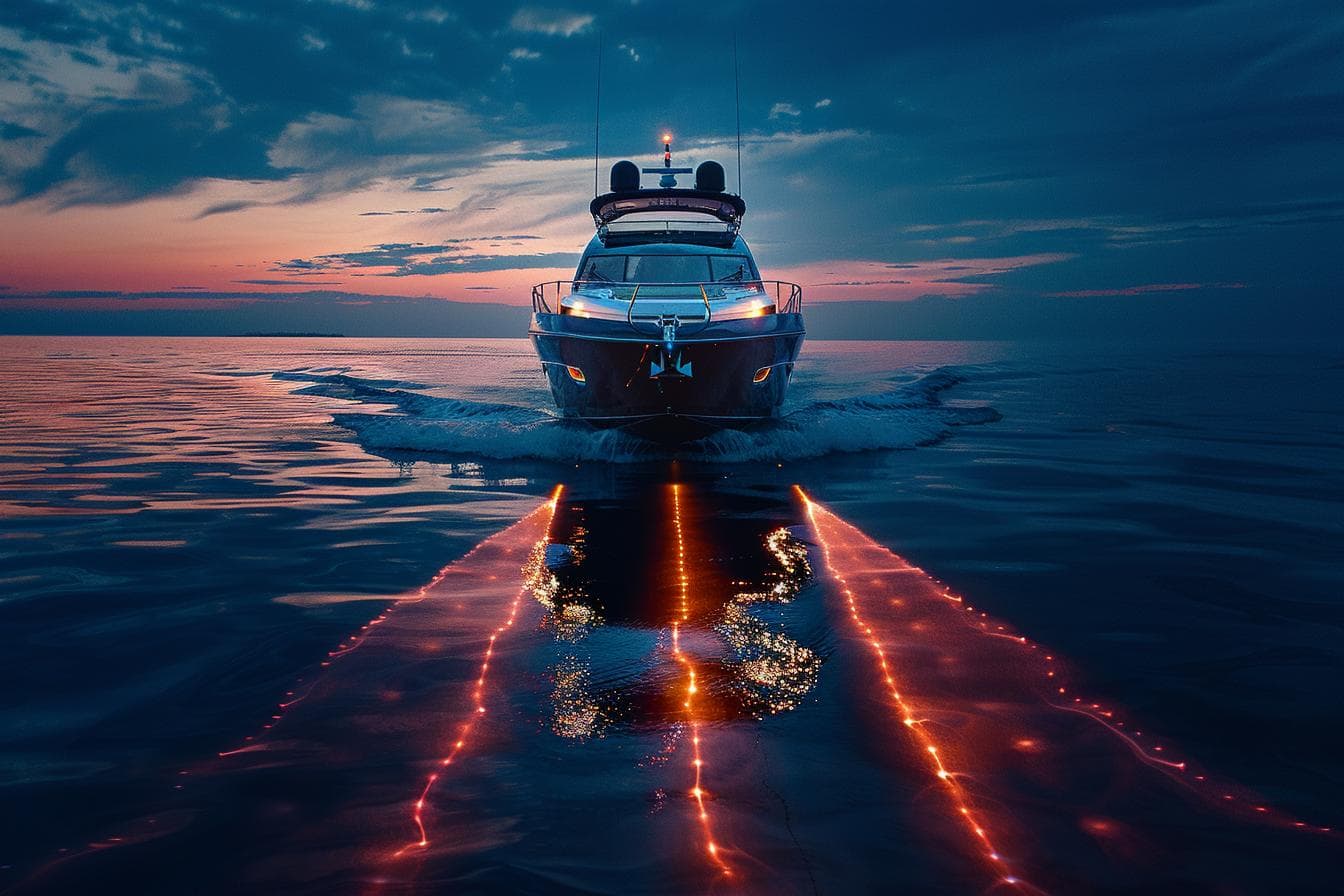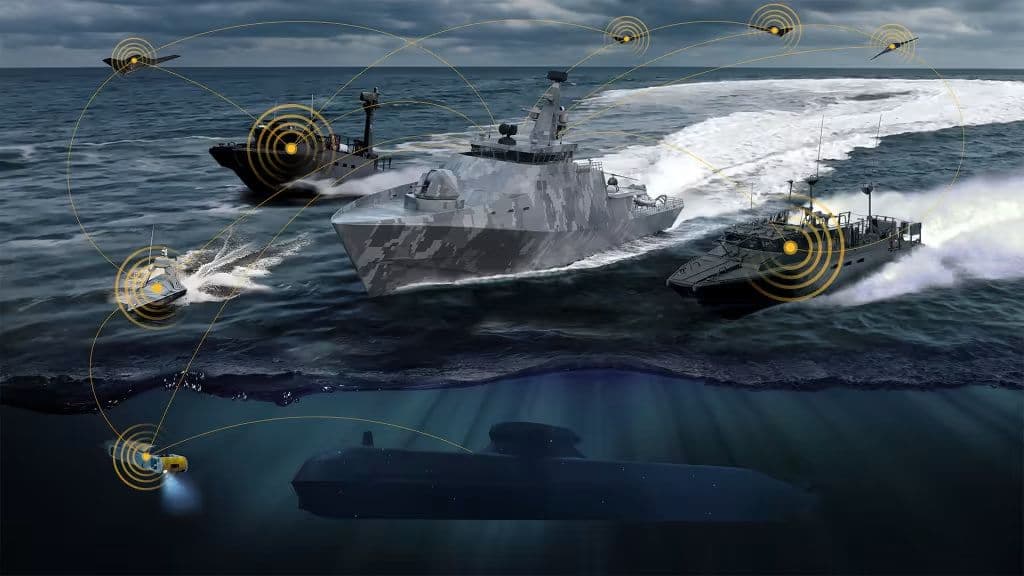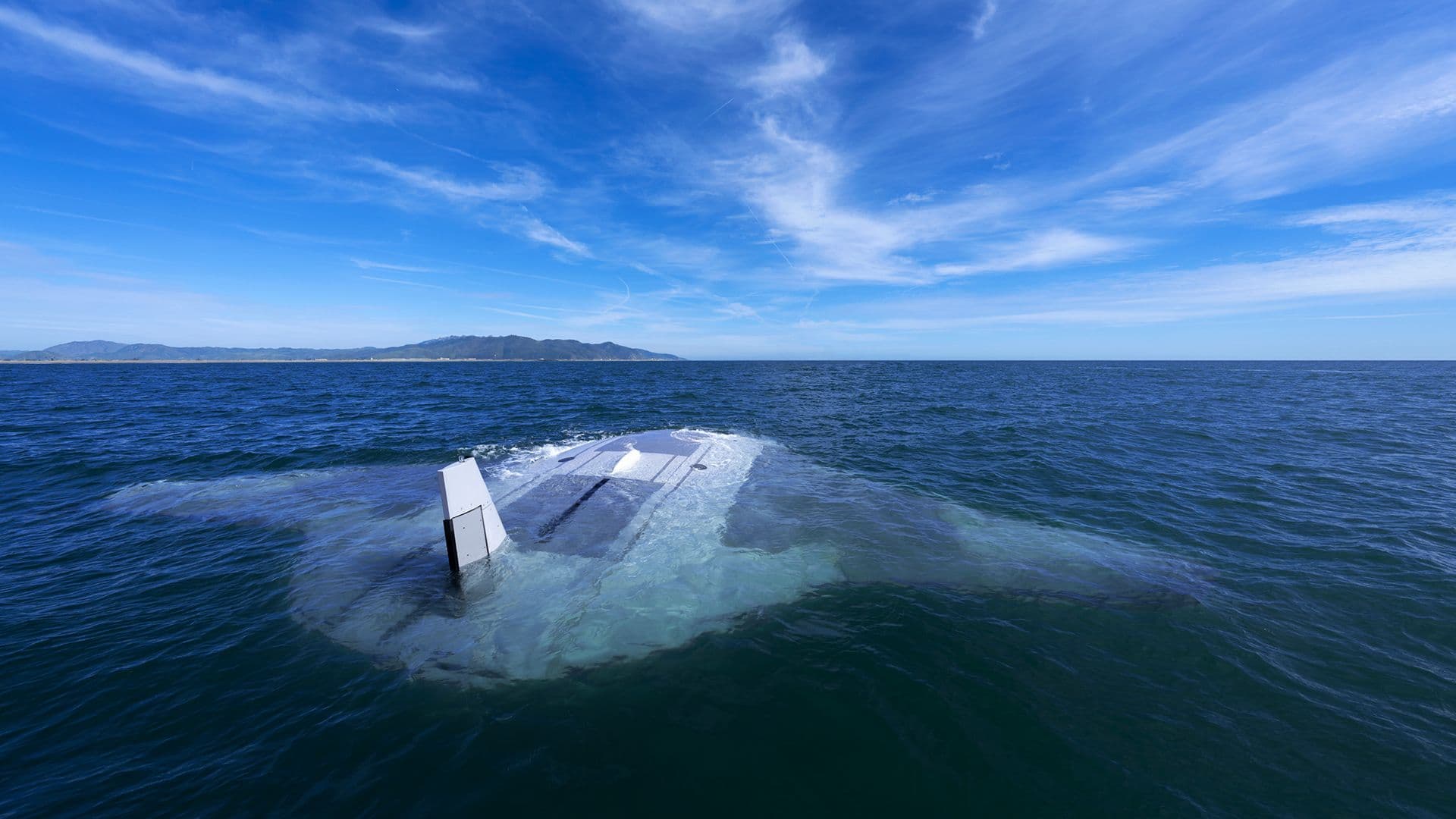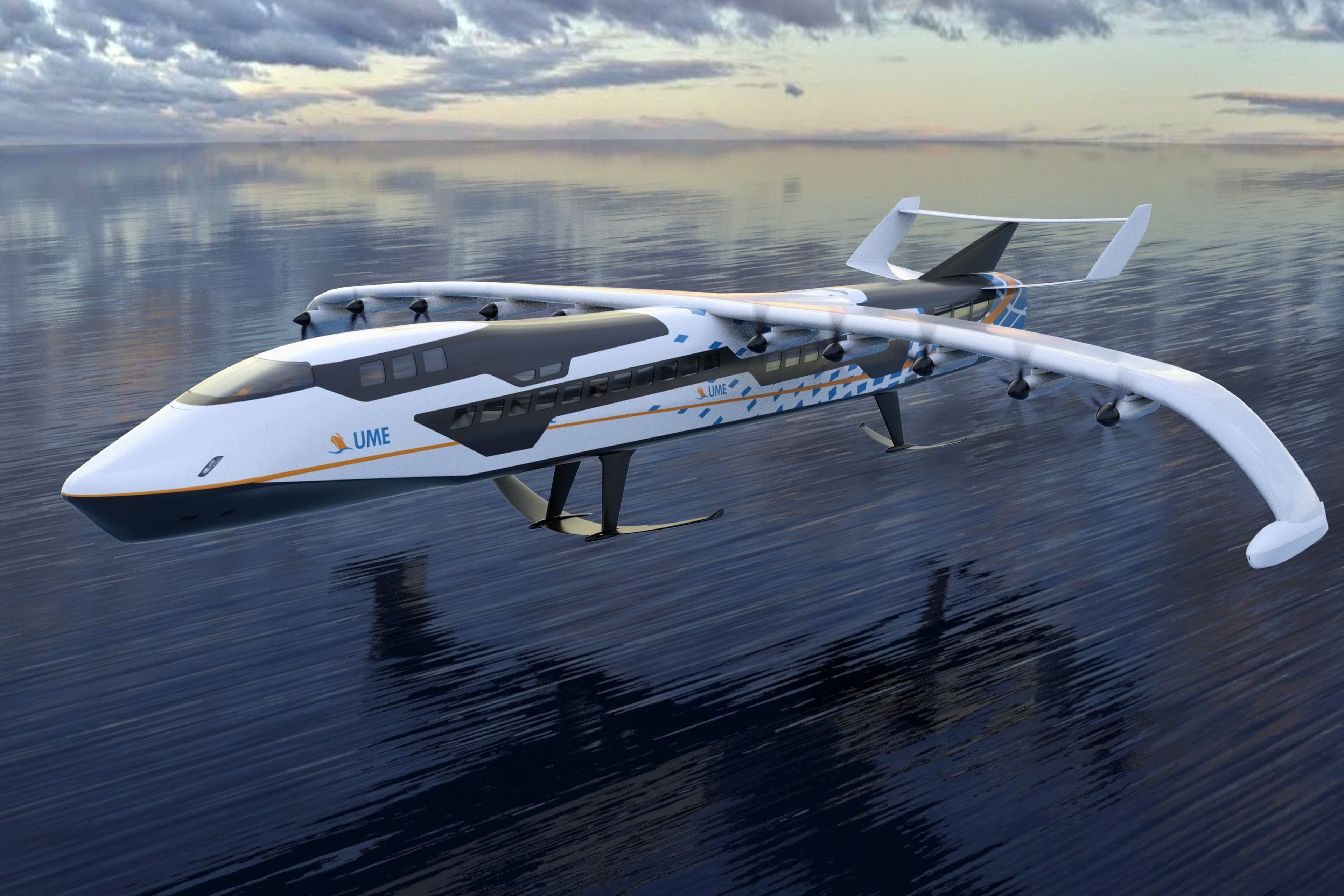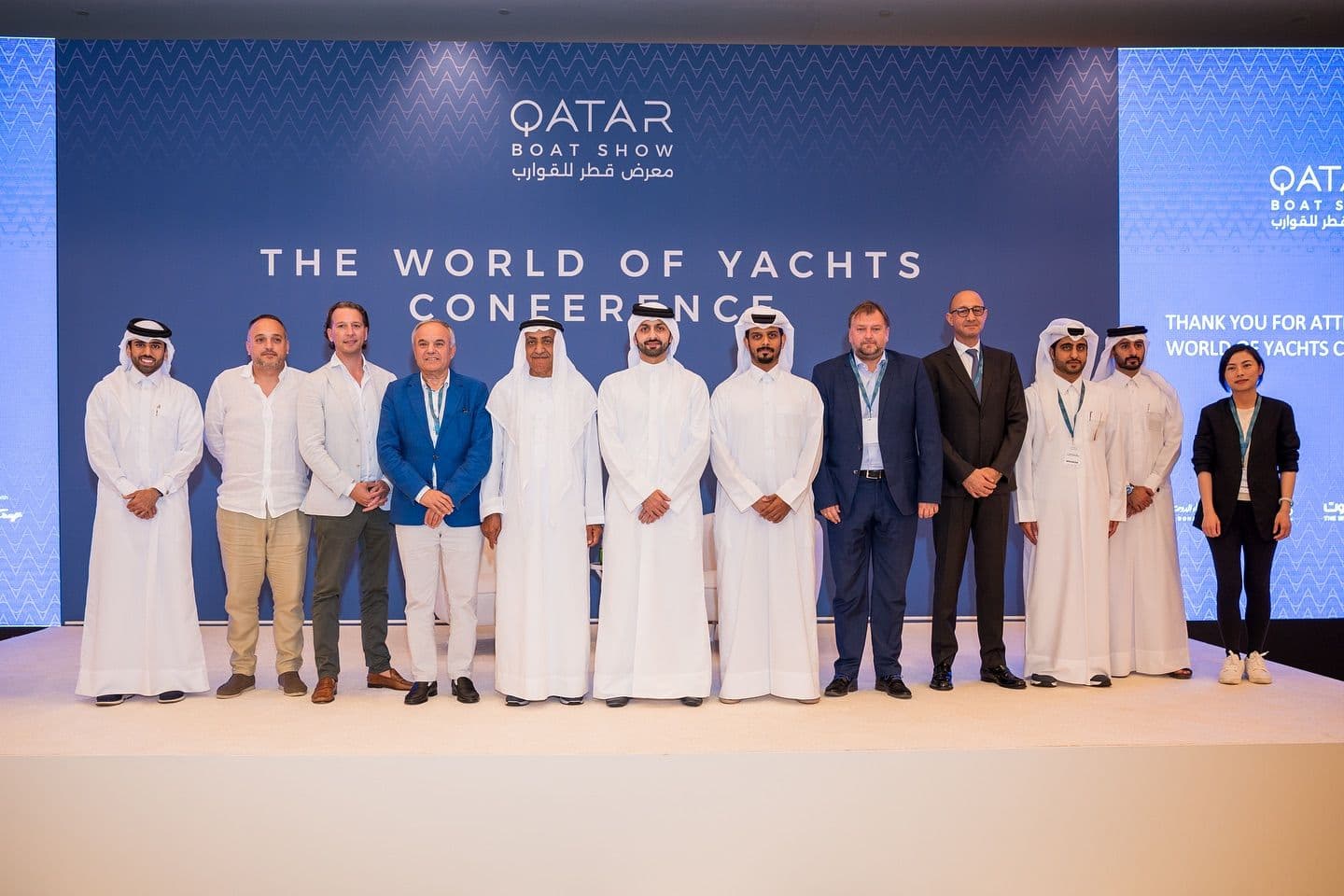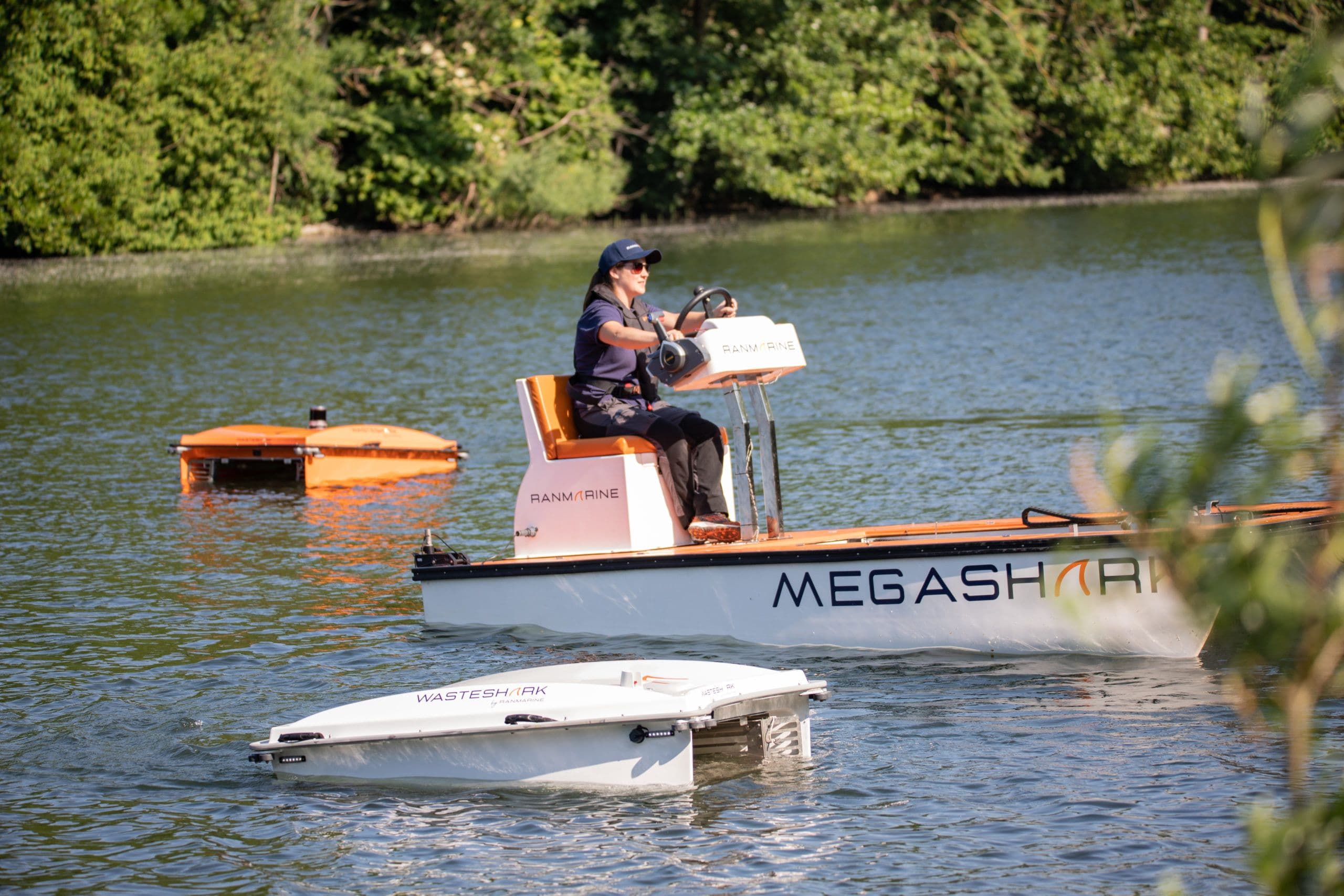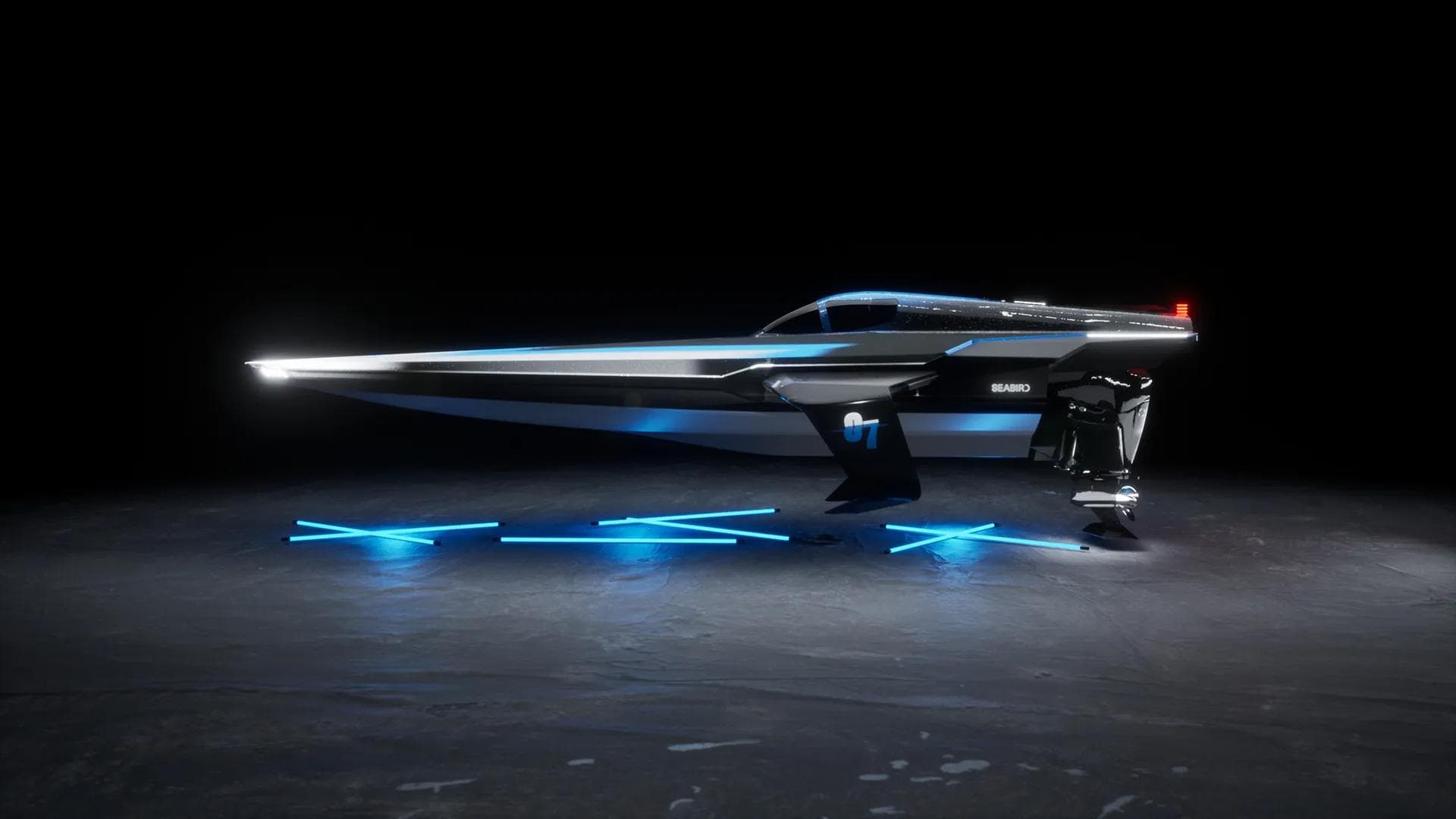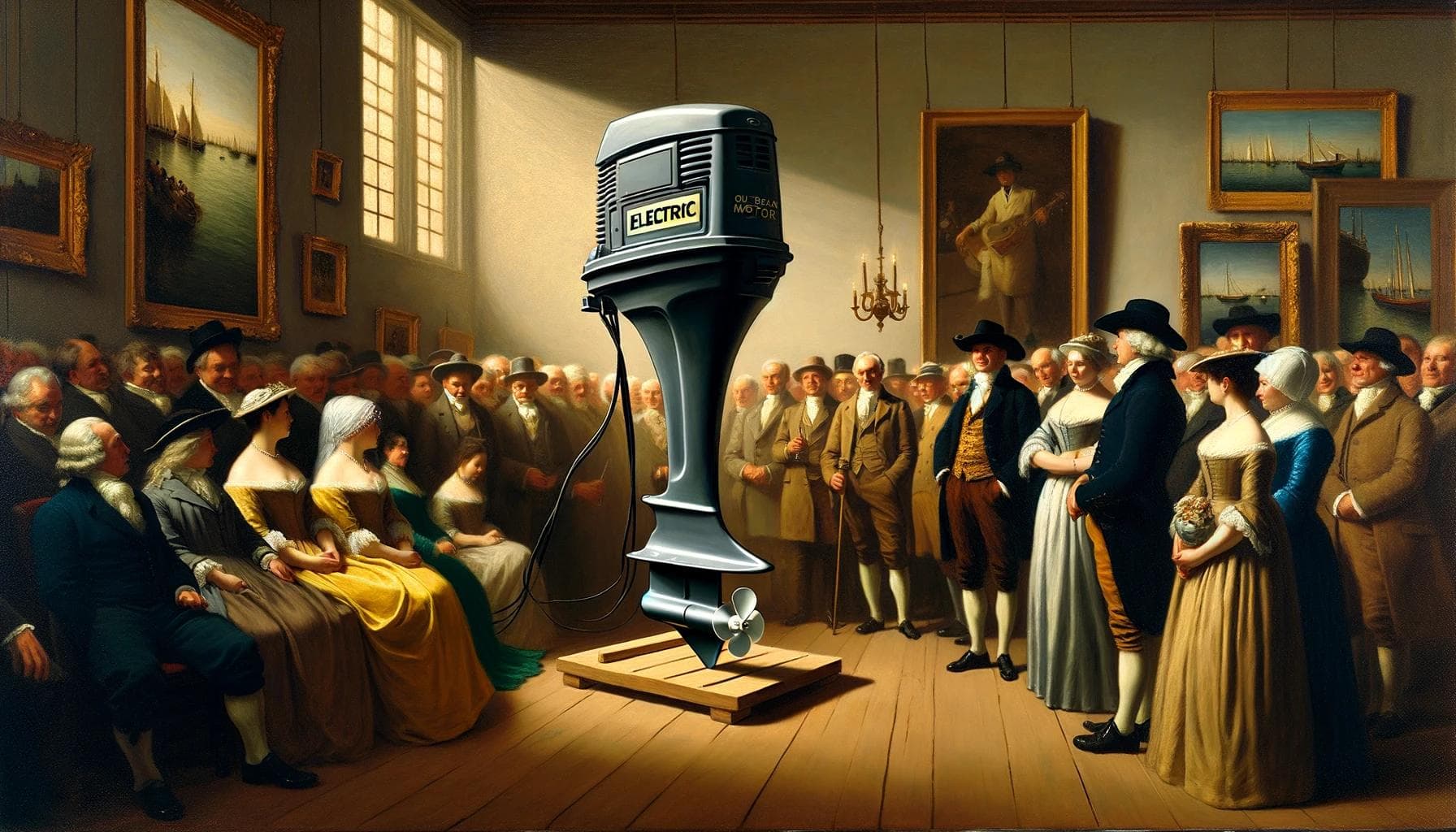So, I smiled excitedly on Friday morning last week when I checked my calendar. Next Friday, I must publish an article about AI advancements in Boating, so I must research the matter.
Being an AI evangelist, I was thrilled to learn more about how it intersects with my other beloved thing - Boating.
The prospects were electrifying. With the image of the captain asking his central computer about the constellations visible tonight in my head, I dove into my research.
I expected to find a technological utopia, but it was a sobering reality check instead.
Research
My research began with limitless enthusiasm. I opened a browser and started surfing the web, registering every AI solution I stumbled upon, every article or review.
It took a while before I compiled a list of 25-ish AI projects. However, the excitement quickly turned to amusement and then frustration. First, I got a hint of what was coming when a whole bunch of main websites of the listed companies proclaimed something like: "This domain is on sale; get it now with a 30% discount."
Then, as I delved deeper into each project, I realized they could be grouped into just 4 or 5 core ideas. To be honest, it was both disappointing and enlightening. The categories were:
- By far the most popular - Enhanced Awareness
- Not-so-Autonomous Navigation
- Predictive Maintenance and Efficiency Optimization
- Smart Docking
- Shameless Dogshit
My initial thrill gave way to a sinking feeling. The more I familiarized myself with the technical details of these categories, the more I was struck by the superficiality of the so-called innovations.

Reality Check
Enhanced Awareness Systems: These systems are designed to improve detection and understanding of the boat's surroundings. They use sensors, cameras, and algorithms to collect data about the environment, analyze it, and provide you with insights and alerts.
Ads are not saying it explicitly, but they appeal to your desire to relax and take a break from constant vigilance. However, this can create a false sense of security and potential safety risks.
Okay, I get the idea. It's better with than without, but let's be honest. If your yacht costs over a mil, 20-50 thousand for you is pocket change, but would you really be able to sleep while your most precious thing in the whole world (ain't we brutally honest?) is going all alone?
You say: - okay, maybe I won't sleep, but at least I can make a cup of tea. Yeah, 40 grand worth of tea. I say you better live longer.
Sure, I know an individual who solo crossed the Adriatic Sea while in his cabin (we advise you to avoid such stupidity), but he could've bought another boat for this money.
Don't get me wrong, I'm not all that salty. I see the potential. In 10 years, it will be impossible to run aground, and a similar system will be the default on any vessel. However, it's more like a marketing gimmick than genuine innovation for now.
Back in 2003, nobody called a collision detection system on the Lexus LS an AI Revolution, and the same applies here.
Enhanced awareness systems have promise but have yet to be the game-changers the marketing hype suggests.
Autonomous Navigation System (ANS): Autonomous navigation companies promise us boats that drive themselves.
Every other claim hits our AI Bullshit Bingo: "Revolutionary AI technology, Unmatched efficiency, Next-gen intelligence…" yet non of them are capable of fully autonomously getting you from point A to point B.
ANS struggles to interpret and respond to the multitude of variables that experienced folks handle intuitively, thus requiring constant oversight or even intervention to avoid incidents.
It is a gimmick to impress your friend rather than a practical solution. Where it is usable, the old autopilot from Raymarine will do just fine.
Also, I don't have to tell you whose responsibility it will be if you go full 'General Custer' with ANS into a dock's pontoon.
Predictive Maintenance and Efficiency Optimization: I wonder if I even have to comment on this.
Predictive Maintenance should foresee mechanical failures before they occur. And while they might provide some insights, they do not eliminate the fundamental need for regular upkeep.
Machines wear out, parts degrade, and no amount of AI in the world can change that. And the reality is that those systems rely on data that is often just as good as the seasoned mechanic could tell you.
The same thing goes with Efficiency optimization. Promising to save fuel and increase performance, they rarely deliver significant results (We are talking about Recreational Boating; in the Maritime sector, the situation is slightly better).
Simple, time-tested navigation and maintenance practices rarely underperform those intelligent systems.
Smart Docking: Okay, technology that wears its purpose on its sleeve. And though I'm a bit biased against it, and the idea is nowhere near being innovative, this is the only technology mentioned that I recommend using today.
Sure, it won't be able to dock your boat in a 35-knot side wind with a strong current, but at least some embarrassing disasters happening under perfect weather conditions can be avoided.
Some systems show decent results in assisting single-handed docking.
While it is a practical tool for many boaters and offers some palpable benefits, like all AI technologies, it still requires a degree of human oversight and understanding to be truly effective.
And one thing worth mentioning: There's nothing quite like the pride of nailing a perfect docking on a stormy day and earning those respectful nods from fellow boaters on the pier.
Shameless Dogshit: A particular category of pseudo-AI projects that border on scams. Like various AI boating assistants that cost money but merely use a free default ChatGPT 3.5 model under the hood. These projects are designed to exploit the AI hype, offering little to no real value.
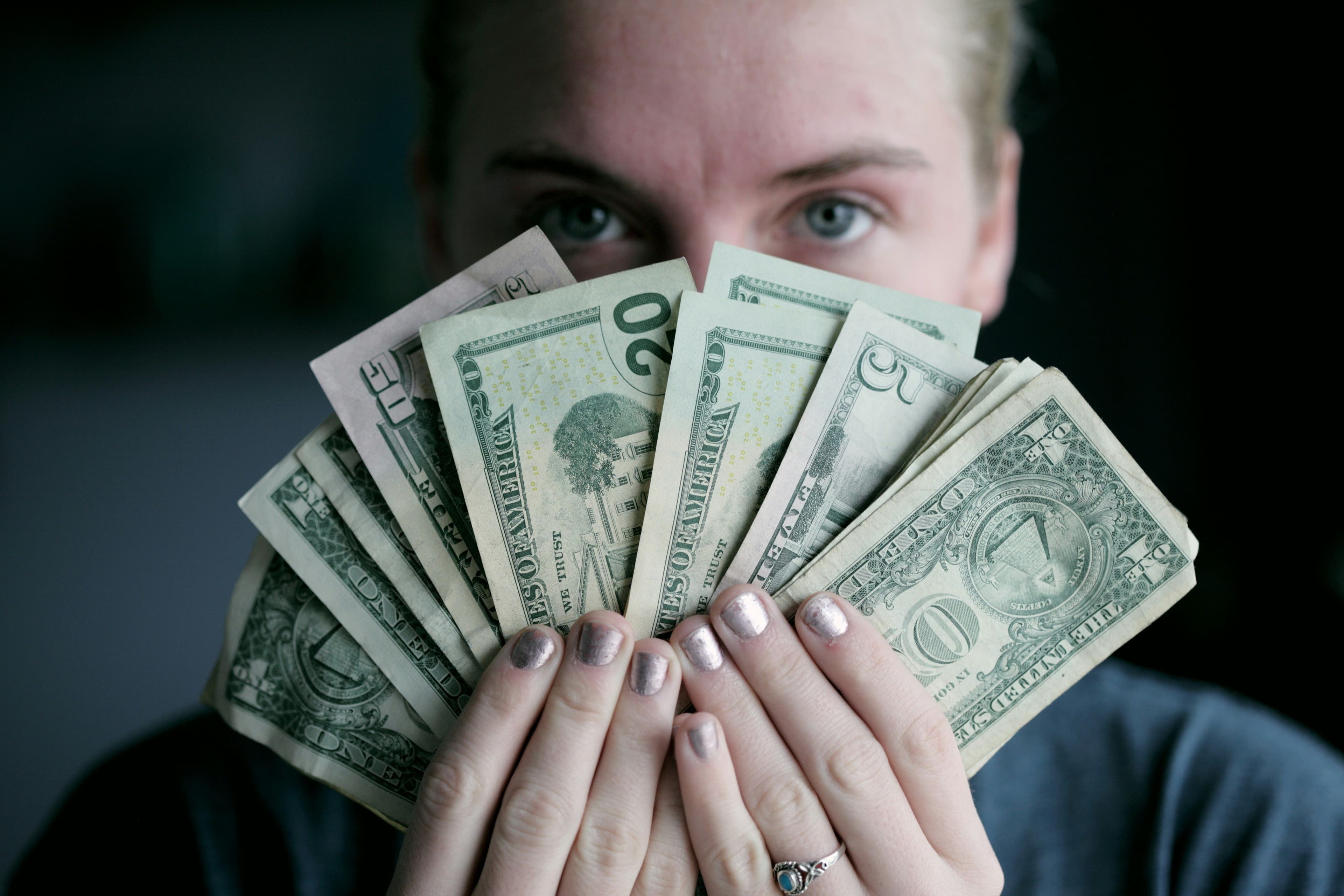
Underlying Causes
Exploring the backstreets of the boating AI scene, I realized why things are as they are.
I was trying to, at least in my imagination, walk a mile or two in each of their shoes.
It became clear that the issues take root not only in technological failures but rather in economic and market dynamics.
The high cost of these systems creates a hell of a barrier for the average boater. These high prices result from targeting a specific market and focusing on making a profit.
As a result, accessibility and adoption are limited, leading to a shortage of data on training their AI models.
As a software engineer, I must recognize the importance of a considerable amount of high-quality data. Without it, AI becomes a complete mess.
It relies heavily on training data to function. Mediocre companies train their models with mediocre data, producing equally mediocre results but with extra flaws.
Then, because they lack the data, people feed this flawed output back into the system. Guess what happens next?
We call it overtraining. It just turns into shit. Over and over and over again. And guess what you end up having to have?
A human being to step in and oversee it.
A profit-driven approach also undermines the potential benefits of these technologies. Instead of being fully integrated by manufacturers, these solutions are costly add-ons, placing a financial burden on the consumer.
In an ideal world, it shouldn't be brought to your attention, as research and development and further adoption should be part of the manufacturer's responsibilities.
I can't imagine paying $40k for a Tesla's Autopilot.
The hype surrounding this sector reveals a disconnect between marketing and reality. Companies will do everything to attract attention and investment despite their technology is far from practical for unsupervised use.
This creates unrealistic expectations and leads to consumer disillusionment.
Ultimately, when AI doesn't meet expectations and becomes costly, people stop trusting it. This doubt makes it harder for new AI technology to be accepted and prevents new ideas from being created.
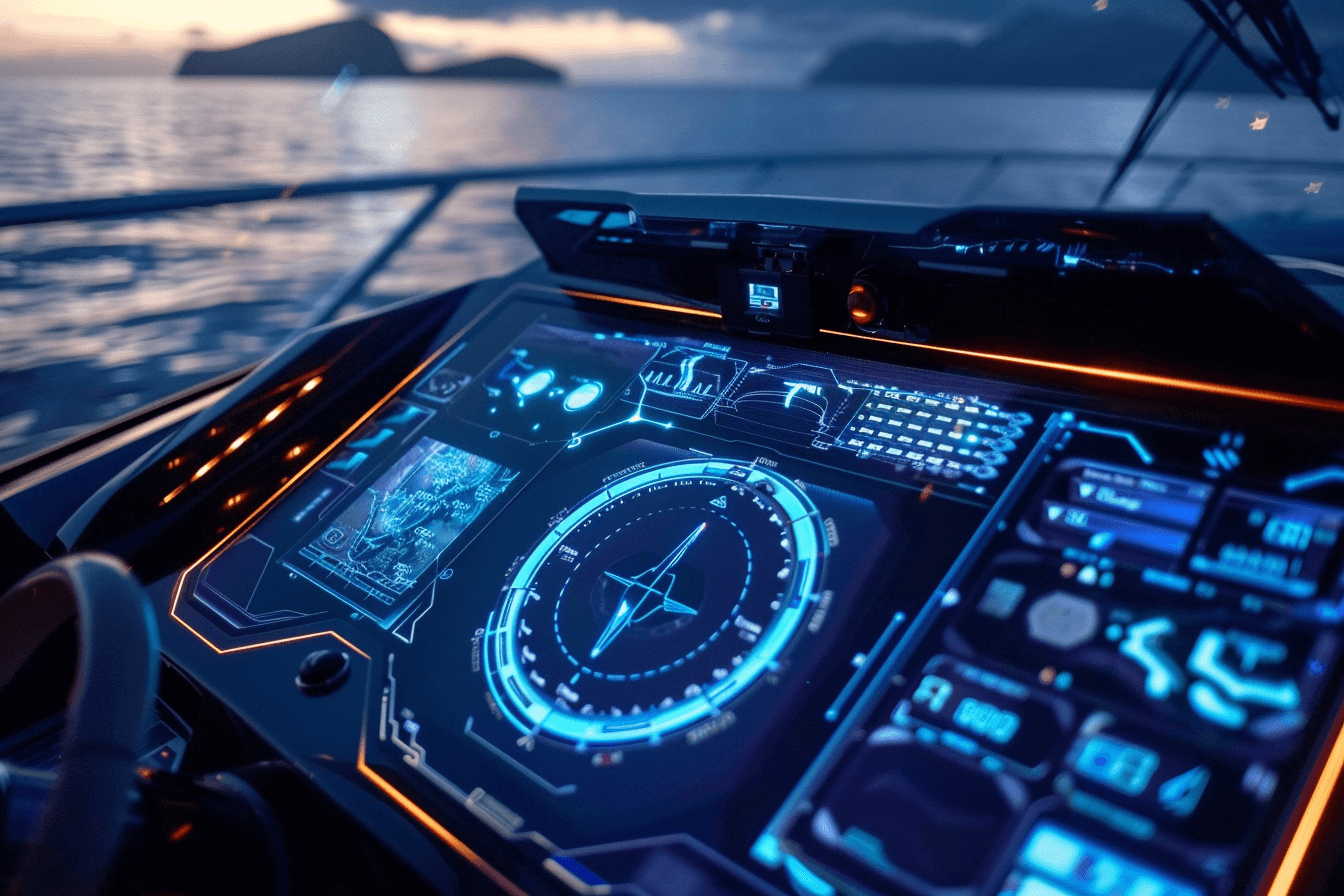
Hope
Almost a week after I started researching, I daydreamed in front of my text editor. I couldn't help but imagine the curiosities the next decade could bring. While the present reality may not be to my liking, the future still holds incredible potential, and I couldn't end the article on such a dire note.
I imagined how, as AI technologies mature, their integration becomes more seamless, and the focus shifts from costly standalone solutions to comprehensive systems that work harmoniously.
Companies would develop a genuine desire to innovate and prioritize user needs over marketing gimmicks.
The industry would mitigate the costs through economies of scale and increased competition, driving prices down and making those innovations accessible to us.
With more boaters using AI technologies, the data pool for training these systems will grow exponentially, leading to more accurate and effective AI solutions as the technology learns from a broader range of real-world scenarios.
Despite the initial disappointments, it wasn't hard for me to imagine such a future.
Boating is entering a new age, and it requires fresh perspectives. It will evolve beyond its current limitations with the right amount of commitment.


